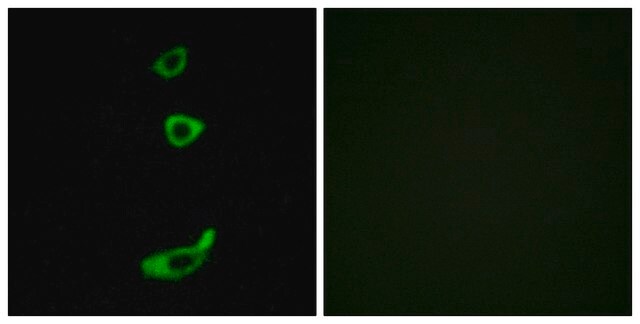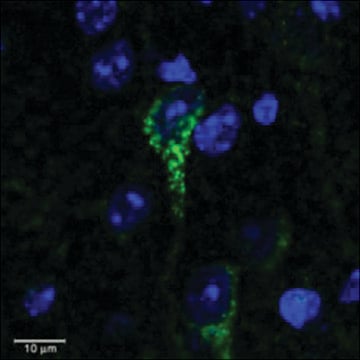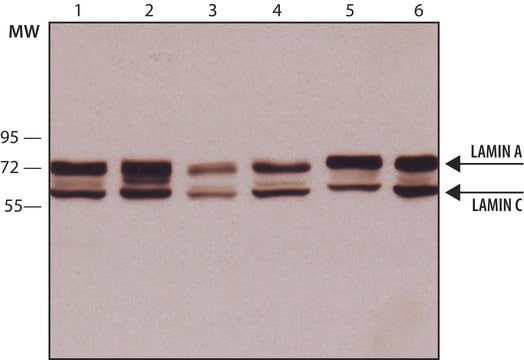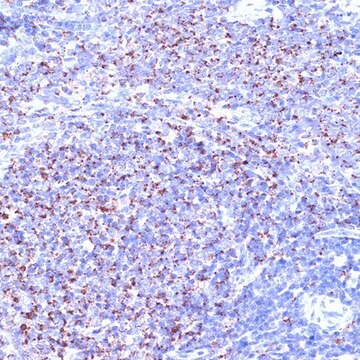SAB4200272
Anti-Progerin antibody, Mouse monoclonal
clone 13A4, purified from hybridoma cell culture
Synonyme(s) :
Anti-CDCD1, Anti-CDDC, Anti-CMD1A, Anti-CMT2B1, Anti-EMD2, Anti-FPL, Anti-FPLD, Anti-HGPS, Anti-IDC, Anti-LDP1, Anti-LFP, Anti-LMN1, Anti-LMNA, Anti-LMNC, Anti-LMNL1, Anti-Lamin A/C, Anti-PRO1, Anti-Renal carcinoma antigen NY-REN-32
About This Item
Produits recommandés
Source biologique
mouse
Conjugué
unconjugated
Forme d'anticorps
purified from hybridoma cell culture
Type de produit anticorps
primary antibodies
Clone
13A4, monoclonal
Forme
buffered aqueous solution
Poids mol.
antigen ~70 kDa
Espèces réactives
human
Concentration
~1.0 mg/mL
Technique(s)
immunoprecipitation (IP): suitable
indirect immunofluorescence: suitable
western blot: 2.5-5.0 μg/mL using whole extracts of HeLa cells overexpressing human progerin.
Isotype
IgG1
Numéro d'accès UniProt
Conditions d'expédition
dry ice
Température de stockage
−20°C
Modification post-traductionnelle de la cible
unmodified
Informations sur le gène
human ... LMNA(4000)
Description générale
Application
- immunoblotting
- immunoprecipitation
- immunofluorescence
Actions biochimiques/physiologiques
Forme physique
Clause de non-responsabilité
Vous ne trouvez pas le bon produit ?
Essayez notre Outil de sélection de produits.
En option
Code de la classe de stockage
10 - Combustible liquids
Point d'éclair (°F)
Not applicable
Point d'éclair (°C)
Not applicable
Faites votre choix parmi les versions les plus récentes :
Certificats d'analyse (COA)
Vous ne trouvez pas la bonne version ?
Si vous avez besoin d'une version particulière, vous pouvez rechercher un certificat spécifique par le numéro de lot.
Déjà en possession de ce produit ?
Retrouvez la documentation relative aux produits que vous avez récemment achetés dans la Bibliothèque de documents.
Notre équipe de scientifiques dispose d'une expérience dans tous les secteurs de la recherche, notamment en sciences de la vie, science des matériaux, synthèse chimique, chromatographie, analyse et dans de nombreux autres domaines..
Contacter notre Service technique








